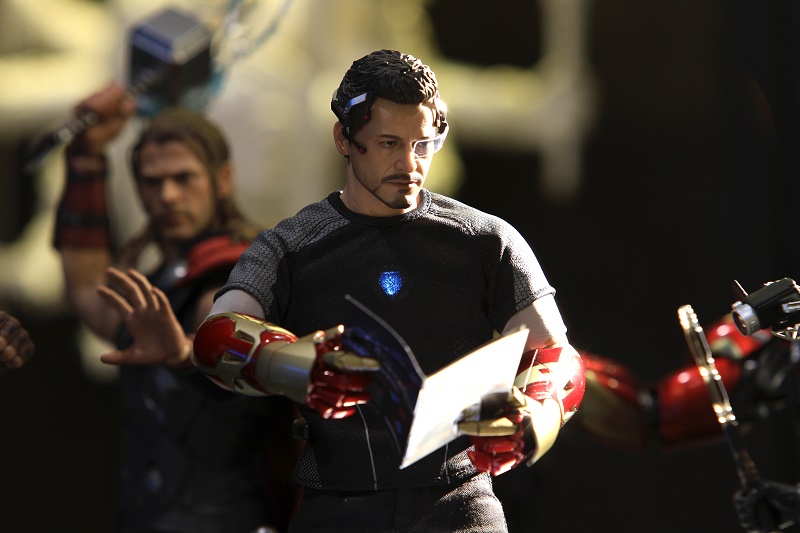Movie industry gender bias means AI scientists are almost all male – disadvantaging women in real life, St John’s researcher finds
“Male engineers create products that are most suitable for male users, employing more women is essential for addressing the encoding of bias and pejorative stereotypes into AI technologies”
High profile films such as Iron Man have amplified cultural stereotypes and entrenched gender inequality within the artificial intelligence industry by portraying AI researchers almost exclusively as men, according to a study co-authored by St John’s academic Dr Kerry McInerney.
The report warns that cultural preconceptions shaped by popular movies could dramatically influence every stage of the pipeline of women into the field of AI, and their experience within it. Their under-representation is not only ‘intrinsically unjust’ but contributes to further injustices because AI systems, widely considered to be central to the future shape of society, “reflect the gender biases of their makers”, the authors say.
“Given that male engineers have repeatedly been shown to engineer products that are most suitable for and adapted to male users, employing more women is essential for addressing the encoding of bias and pejorative stereotypes into AI technologies,” the report warns.

The study, published in the journal Public Understanding of Science, analysed the 142 most influential films featuring AI over the last century (1920 to 2020). Researchers found that 86 showed one or more AI researchers, and of those only 8 per cent were women (just nine out of 116 individuals). Of the nine women portrayed, five worked for a man or were the child or partner of a more senior male AI engineer.
“Not one of the 142 AI films was solely directed by a woman”
The research highlights the Avengers film franchise, which depicts a stereotypical lone male genius (Iron Man) who is able both to synthesise an element and solve the problem of time travel “in one night”. In Alex Garland’s 2014 movie Ex Machina, another lone genius is so successful that he rises above the norms of ethics and law, subjecting an employee to violence while entertaining himself with sex bots.
The earliest film in the list with a female AI creator is the 1997 movie Austin Powers: International Man of Mystery, featuring a trio of “fembots” with bullet-firing breasts.
The representation of women in on-screen AI roles was found to be even less equal than in the global AI workforce itself, which is 78 per cent male. “We found this wasn’t even art mimicking life – it was worse,” said Dr McInerney, one of a team of four researchers at Cambridge’s Leverhulme Centre for the Future of Intelligence who authored the report.
Reversing the under-representation of women in AI on-screen would not immediately fix the entrenched inequalities in the AI industry, Dr McInerney said. “Pay disparity, sexual harassment and gender stereotyping of what are considered to be the skills you need to exist in that industry are all part of the problem. But mainstream films are an enormously influential source and amplifier of these cultural stereotypes.
“The intersecting inequalities of the AI industry and film-making industry influence which stories get made and who is making those stories.” The study found that not one of the 142 AI films was solely directed by a woman.
“Films don’t only shape public perception of AI, but also have quite a direct influence on scientists and venture capitalists and what they invest in”
Films also reinforced the flawed and damaging stereotype of the genius scientist, who was – again – almost exclusively male, Dr McInerney added. Out of the 116 AI scientists, 38 – a third - were presented as geniuses, and 37 out of the 38 geniuses shown in films were male. This ‘brilliance bias’ in the portrayal of AI researchers risks putting off women from entering the sector.
Another manifestation of the relationship between films and the tech industry identified by researchers was the so-called “Hollywood feedback loop” between blockbuster movies and Silicon Valley that even saw Twitter CEO Elon Musk appear in the film Iron Man. “Films don’t only shape public perception of AI, but also have quite a direct influence on scientists and venture capitalists and what they invest in,” Dr McInerney said.
The report’s authors hope their findings will produce tangible change, including encouraging film-makers to consult more widely with experts when representing characters working in AI and influencing funders to consider who they finance to tell AI narratives. They also hope a wider range of stories told by women and authors from around the globe will become the basis of future films.
Dr McInerney, who is co-host of The Good Robot podcast on feminism and technology, is co-editor of a book titled Feminist AI, to be published by Oxford University Press later this year.
- Cave, S., Dihal, K., Drage, E., & McInerney, K. (2023). Who makes AI? Gender and portrayals of AI scientists in popular film, 1920–2020. Public Understanding of Science, 0(0). https://doi.org/10.1177/09636625231153985
Published 20/02/2023